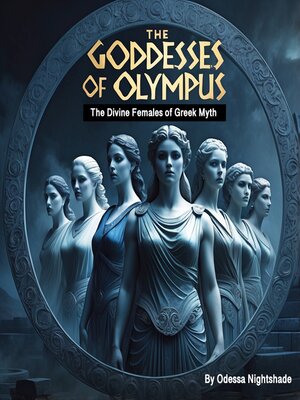The Goddesses of Olympus
audiobook (Unabridged) ∣ The Divine Females of Greek Myth
By Odessa Nightshade

Sign up to save your library
With an OverDrive account, you can save your favorite libraries for at-a-glance information about availability. Find out more about OverDrive accounts.
Find this title in Libby, the library reading app by OverDrive.



Search for a digital library with this title
Title found at these libraries:
| Library Name | Distance |
|---|---|
| Loading... |
Greek mythology is filled with powerful deities, but the goddesses of Olympus stand out as figures of immense influence, embodying wisdom, love, war, motherhood, and the natural world. Unlike many other ancient pantheons, the Greek goddesses were not merely passive consorts to male gods; they held dominion over vast aspects of life and fate, shaping the world alongside their male counterparts. Their myths reveal complex personalities, often showcasing both nurturing and vengeful qualities, making them among the most dynamic figures in classical mythology.
The Olympian goddesses played a crucial role in the religious and cultural life of the ancient Greeks. Each goddess had her own temples, festivals, and priestesses, emphasizing her importance in daily worship and ritual practice. For example, Athena's grand temple, the Parthenon, dominated Athens, reflecting her status as the city's protector. Similarly, Demeter's worship at Eleusis was central to agricultural and spiritual life, demonstrating the deep connection between divine power and human existence. These deities were not merely symbols; they were revered beings believed to influence everything from war strategies to the fertility of the land.
Beyond religion, Greek goddesses also played a major role in storytelling, appearing in epic poetry, drama, and philosophy. Figures like Hera, Athena, and Aphrodite were central to the Trojan War myth, while Persephone's descent into the underworld explained the changing of the seasons. Their myths often reflected the Greeks' views on power, femininity, and morality. Unlike the rigid roles imposed on mortal women, the goddesses possessed a wide range of attributes, from Artemis's independence and warrior spirit to Hestia's quiet but essential presence as the guardian of the home. Through these divine narratives, the Greeks explored themes of justice, fate, love, and revenge, using their goddesses as symbols of both order and chaos.







